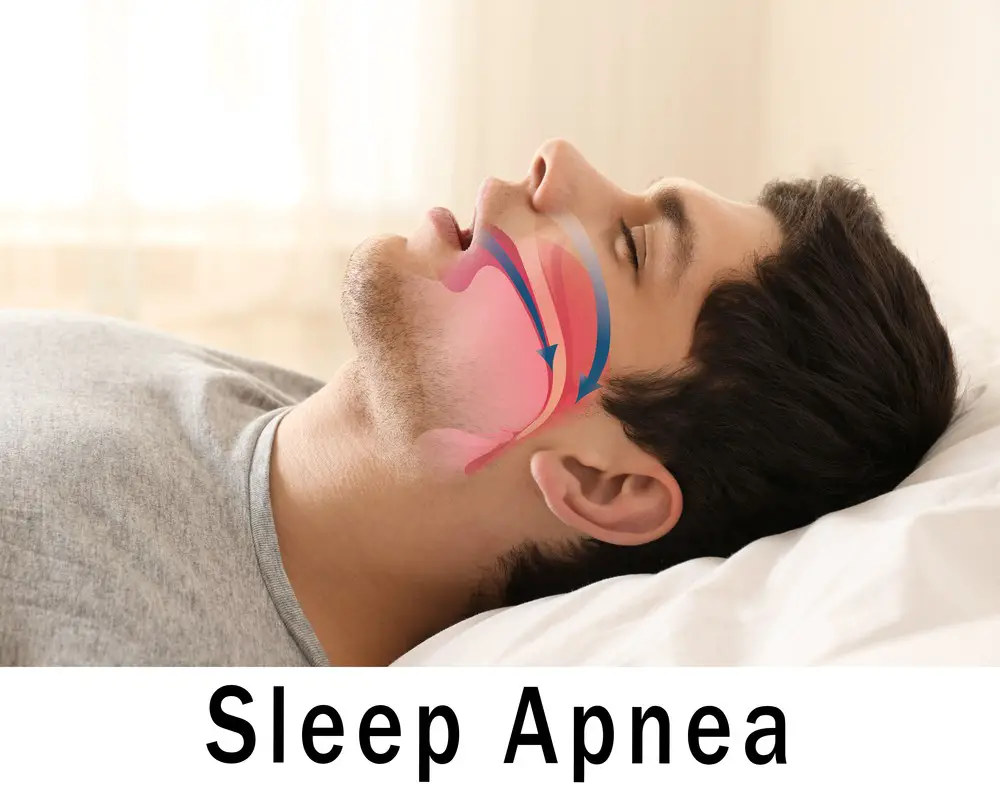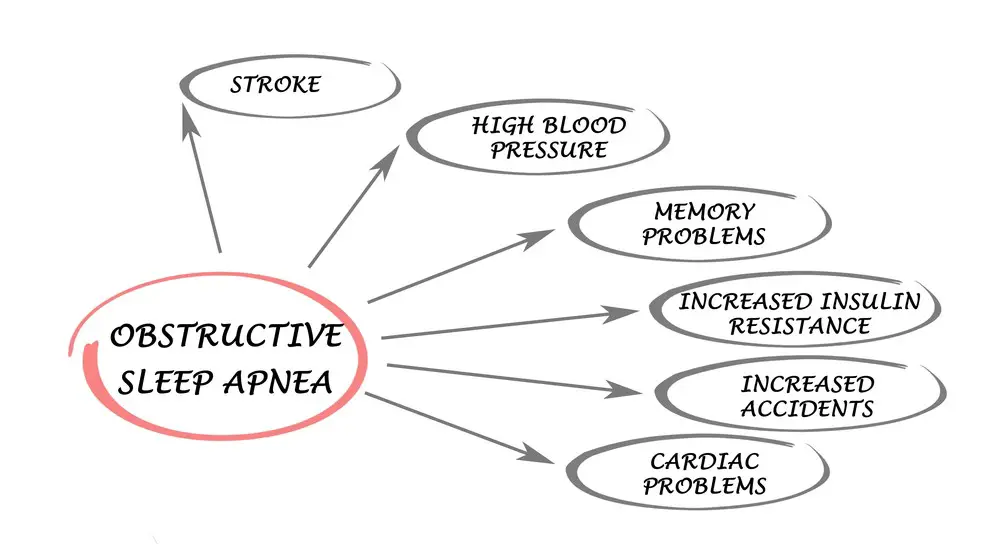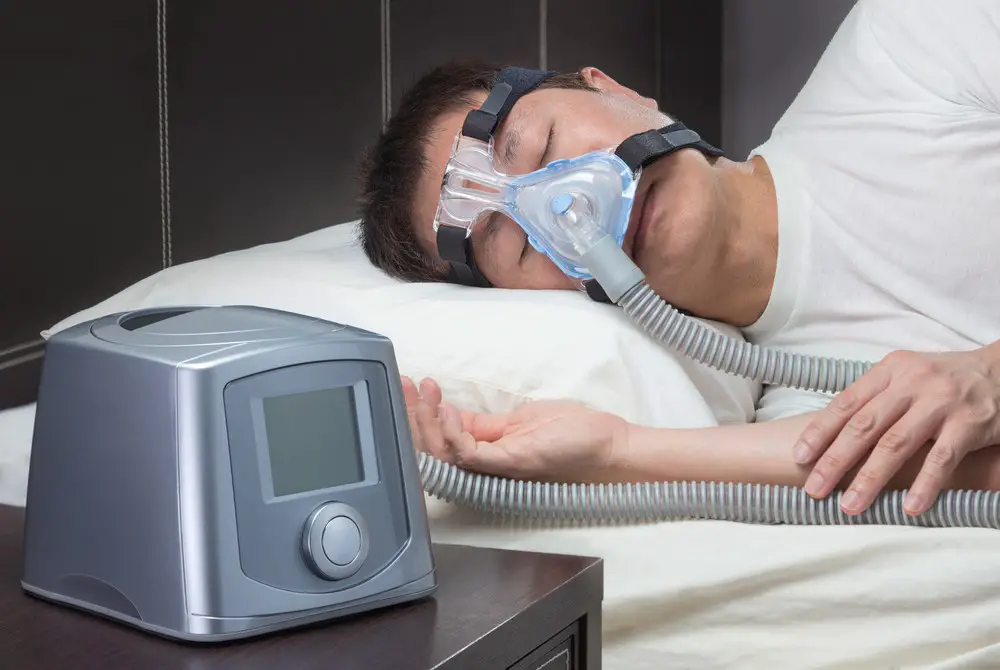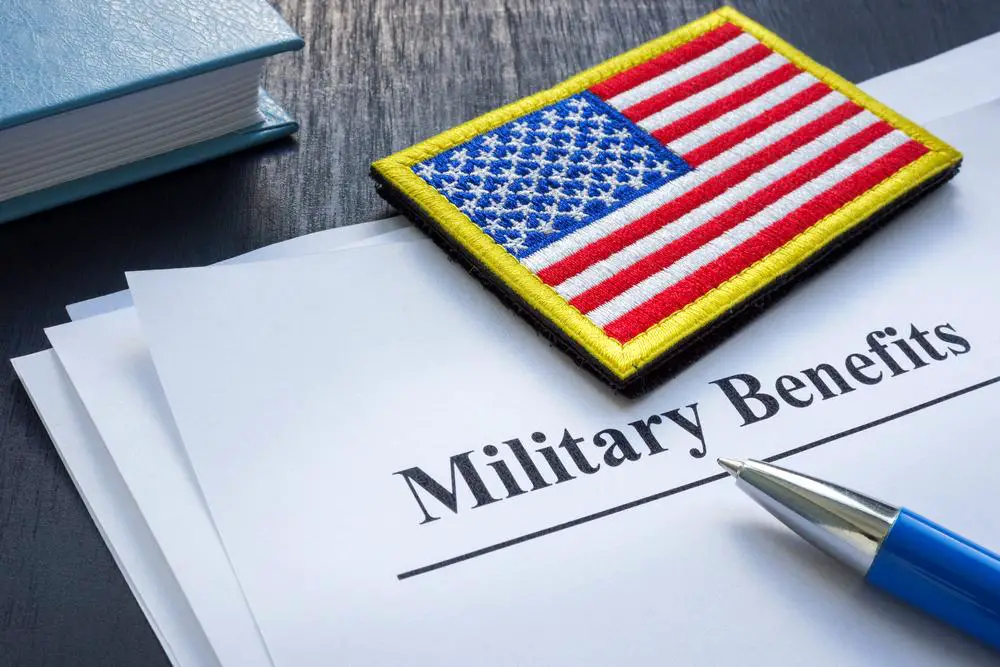As a BetterHelp affiliate, we receive compensation from BetterHelp if you purchase products or services through the links provided
Navigating the VA disability claims process can feel overwhelming, especially when dealing with a condition like sleep apnea. If you’re trying to secure benefits for sleep apnea, it’s critical to understand how your service is connected to your condition and what specific medical evidence can fortify your claim. It’s not just about proving your sleep apnea but also demonstrating how it affects your life and links to your military service.
As you prepare your VA claim for sleep apnea, knowing the ins and outs of effectively demonstrating this connection is key. This includes leveraging supporting documents such as medical records, employing the right legal strategies, and understanding the significance of a CPAP machine in substantiating your claim. Additionally, if you have secondary conditions related to your sleep apnea, making those connections clear could be pivotal in the success of your claim.
Key Takeaways
- Proper documentation and medical evidence are vital in establishing service connections for sleep apnea.
- The usage of a CPAP machine can significantly support your VA claim.
- Exploring secondary conditions linked to sleep apnea may enhance your claim’s validity.
Understanding Sleep Apnea
 Before diving into the specifics, it’s essential to grasp that sleep apnea is more than just snoring; it’s a severe disorder that can significantly impact your health and daily life.
Before diving into the specifics, it’s essential to grasp that sleep apnea is more than just snoring; it’s a severe disorder that can significantly impact your health and daily life.
Defining Sleep Apnea
Sleep apnea is a sleep disorder where breathing stops and starts repeatedly during sleep. This can lead to various health complications.
Types of Sleep Apnea
- Obstructive Sleep Apnea (OSA): This is the most common form where the throat muscles intermittently relax and block your airway during sleep.
- Central Sleep Apnea: Unlike OSA, central sleep apnea occurs when your brain doesn’t send proper signals to the muscles that control breathing.
- Complex Sleep Apnea: Also known as treatment-emergent central sleep apnea, it combines both obstructive and central sleep apnea.
Key takeaway: Knowing your type of sleep apnea is crucial for successful treatment and potentially winning a VA claim related to your condition.
VA Disability Claims Process
Navigating the VA disability claims process can seem daunting, but understanding the key elements can make it manageable. Knowing your eligibility and the filing steps are essential to a successful claim for VA disability benefits.
Eligibility Criteria
Before you start the process, it’s essential to determine if you meet the eligibility criteria for VA disability benefits. Generally, you must have:
- Served on active duty, active duty for training, or inactive duty training
- A current illness or injury (referred to as a condition) that affects your body or mind
- Evidence that links your condition to your service (service connection)
Your condition doesn’t need to be combat-related, but it should be linked to your military service. Sometimes, evidence can be direct, like a medical record showing you were treated for sleep apnea during service. Other times, it could be a presumption based on your service, such as exposure to certain conditions or environments.
Steps to File a VA Claim
When you’re ready to file a VA claim for sleep apnea or any other disability, take these strategic steps to improve your chances of success:
- Gather Evidence: Collect all relevant medical and service records and other documents supporting your claim.
- Submit Your Claim: You can file a claim online through the VA’s eBenefits portal, in person at a VA office, or by mail.
- VA Claims Examination: After filing, you might be asked to complete a Compensation & Pension (C&P) exam to evaluate your condition.
- Claim Decision: The VA reviews your claim, examines all the evidence you provided, and decides on your disability rating.
Remember, the more thoroughly you document your service-connected condition, the better. Keep copies of everything you submit for your record. When filing your claim, be precise; if you can, consult with a VA claims expert to help you navigate the complexities of the process.
Service Connection for Sleep Apnea
When pursuing a VA claim for sleep apnea, understanding the concept of service connection is vital. It’s the bridge that links your sleep apnea to your military service.
Proving Service Connection
Successfully proving service connection for sleep apnea involves three critical steps:
- Medical Diagnosis: You must have a sleep study confirming you have sleep apnea.
- Nexus: A clear link or nexus between your sleep apnea and military service is essential.
- Medical Records: Documentation in your medical records of the severity of your sleep apnea supports your claim.
Here are some tips to fortify your claim:
- Ensure your sleep apnea diagnosis is well-documented.
- Gather any service medical records showing symptoms or treatment related to breathing issues during your service.
A nexus letter from a medical professional can be a powerful piece of evidence; it should state that your sleep apnea is “at least as likely as not” caused by your military service.
Nexus for Sleep Apnea
The nexus is the crux of your sleep apnea VA claim. Establishing this connection requires:
- A thorough explanation of how your sleep apnea is linked to your service.
- Evidence that your condition started or was aggravated by your time in the military.
Consider obtaining a nexus letter from a qualified medical professional. This letter should explicitly describe the link between your sleep apnea and military service.
Key Takeaway: Proving service connection for sleep apnea is a detailed process. It hinges on a confirmed diagnosis, a clear nexus, and ample documentation. A nexus letter can be a deal-maker in this scenario.
Medical Evidence and Documentation
When you’re looking to establish a successful Sleep Apnea VA Claim, the bedrock of your case will be solid medical evidence and comprehensive documentation. Focusing on these can significantly enhance your chances of recognizing and appropriately rating your claim.
Gathering Medical Records
Your medical records are invaluable in painting a picture of your health and the progression of your sleep apnea. You should start by collecting:
- Service Treatment Records: These may show symptoms or complaints during service specific to sleep apnea.
- Post-Service Medical Records: Documentation that traces the history of your condition after service.
- Private Medical Records: If you’ve seen non-VA doctors, these records are necessary to provide a complete medical history.
Each record should indicate your diagnosis and the condition’s impact on your daily life. To strengthen your claim, ensure these records are organized and readily accessible.
Importance of a Sleep Study
A sleep study is a clinician-administered test that provides concrete evidence of sleep apnea. Here’s why it’s a linchpin for your claim:
- Diagnosis: It can confirm the presence of sleep apnea.
- Severity Assessment: The results can demonstrate the seriousness of your condition.
Participating in sleep studies might feel like a hurdle, but these diagnostic evaluations provide the empirical evidence to make or break your claim. It’s vital to follow through with any recommended studies and to include these results in your submission.
Key takeaway: The scientific collection of medical records and sleep study results is the crux of a compelling Sleep Apnea VA Claim. Ensure that you have thorough and organized documentation to back your case.
Sleep Apnea Ratings and Severity
 When filing your claim, understanding the VA rating criteria and the severity of sleep apnea symptoms is crucial. A correct rating can mean a significant difference in your disability benefits.
When filing your claim, understanding the VA rating criteria and the severity of sleep apnea symptoms is crucial. A correct rating can mean a significant difference in your disability benefits.
VA Rating Criteria
The VA uses specific guidelines to determine your disability rating for sleep apnea, delineated by Diagnostic Code 6847. Your condition can be rated under 0%, 30%, 50%, or up to a 100% disability rating. Here’s what each level generally involves:
- 0% Rating: Diagnosis of sleep apnea without significant symptoms or treatment.
- 30% Rating: Daytime sleepiness affects your daily activities.
- 50% Rating: You require a CPAP (Continuous Positive Airway Pressure) machine.
- 100% Rating: Chronic respiratory failure or the need for a tracheostomy.
It’s essential that your rating reflects the true impact sleep apnea has on your health and your life.
Evaluating Severity of Symptoms
The severity of your sleep apnea is gauged by your everyday symptoms and how they affect your life. Here are factors that help measure severity:
- Frequency of Symptoms: How often do you experience sleep apnea episodes?
- Daytime Sleepiness: Do you feel overwhelmingly tired during the day?
- Impact on Daily Life: Are your work and daily activities compromised?
When gathering evidence, make sure your medical records detail your symptoms and their frequency. If you’re using a CPAP machine, this could point to at least a 50% disability rating due to the severity required to warrant such treatment.
Key Takeaway: The accuracy of your VA claim rating for sleep apnea rests upon providing clear evidence of the severity of your symptoms and how they influence your daily life. Make sure your documentation is thorough to reflect this.
CPAP Use and VA Claims

When managing your sleep apnea VA claim, evidence of continuous positive airway pressure (CPAP) machine use can significantly bolster your case. A CPAP prescription establishes the medical necessity and the severity of your sleep apnea, critical factors in securing your VA benefits.
Role of CPAP in Claims
A CPAP machine is not only a standard treatment for sleep apnea but also a pivotal piece of evidence in your VA claim. Essentially, if you’ve been prescribed a CPAP machine, it’s understood that your sleep apnea is at least moderate to severe. This is important because, according to the VA’s rating schedule, using a CPAP machine automatically qualifies for a minimum 50% disability rating.
- Prescribed Use: If your doctor has prescribed a CPAP machine, it indicates that your sleep apnea requires significant management.
- Severity Indication: The need for a CPAP machine shows that your condition is severe enough to require consistent nightly use to maintain your health.
Proving CPAP Necessity
Establishing the necessity of a CPAP machine is a two-pronged task: documenting your medical need and connecting it to your service.
- Medical Evidence: Keep records of sleep studies, prescriptions, and doctor’s notes detailing your diagnosis and medical advice regarding your CPAP machine.
- Service Connection: Draw a clear line from your sleep apnea to your military service. This could be a direct service connection, such as an in-service diagnosis or event, or a secondary connection, where another service-connected condition, like Post-Traumatic Stress Disorder (PTSD), leads to weight gain, which subsequently exacerbates or causes sleep apnea.
Keeping meticulous records and demonstrating consistent CPAP use is your go-to. If your treatment involves a CPAP, it is practical evidence of your sleep apnea’s impact on your life. This is a compelling element in any claim you submit.
Secondary Conditions and Service Connection
It can be challenging to navigate VA claims, especially when it comes to understanding how secondary conditions can affect your sleep apnea claim. To strengthen your case, let’s take a closer look at the common secondary conditions and how they can be linked to service connection.
Common Secondary Conditions
Your journey with sleep apnea may involve more than just the primary condition; secondary conditions often play a crucial role. These are health issues that have arisen as a direct result of or are aggravated by your service-connected sleep apnea. It’s essential to recognize the most frequently encountered secondary conditions, such as:
- Obesity: Often a byproduct of sleep apnea, which can exacerbate other health issues.
- PTSD: The stress and anxiety from PTSD can disrupt sleep, contributing to sleep apnea.
- Asthma, Rhinitis, and Sinusitis: Respiratory conditions that can aggravate sleep apnea or may be aggravated by it.
- Anxiety and Depression: Psychological conditions that can influence your sleep patterns.
- GERD: Acid reflux disease often worsens when you have sleep apnea.
Identifying and documenting these conditions is foundational in building your claim effectively.
Linking Secondary Conditions
Now, let’s talk strategy. To successfully service-connect your secondary conditions:
- Gather Medical Records: Include sleep studies, doctor consultations, and relevant treatment details.
- Detail Your Symptoms: Record how your sleep apnea and secondary conditions impact your daily life.
- Establish a Nexus: Show the link between your sleep apnea and each secondary condition. Expert statements can be pivotal here.
For example, if you have PTSD, demonstrate how it may cause or worsen your sleep apnea. Or, if obesity is part of your health picture, describe the direct sequence of how sleep apnea has contributed to weight gain and not vice versa.
Remember, each piece of evidence you provide strengthens the web of connections, showing a clear line from your military service to your current health challenges. Your attention to detail can be the make-or-break factor in your claim.
Key Takeaway: Document every related health issue and how they connect back to your sleep apnea—think of it as drawing a detailed map that leads the VA to conclude that your secondary conditions are indeed service-connected.
Compensation and Legal Representation
When seeking VA benefits for sleep apnea, understanding your compensation entitlements and the value of legal representation can make a significant difference.
Hiring a VA Attorney
You’re not alone in this process; a VA attorney can be a game-changer for your claim. Here’s why:
- Expertise: Attorneys specialize in VA law and are adept at navigating the complex VA claims system.
- Strategy: They can help develop a strong case by gathering evidence and crafting compelling arguments.
Remember, it’s about building a team invested in your success. Partnering with a skilled representative can alleviate the burden and confusion, allowing you to concentrate on what matters most—your health.
Understanding Compensation Levels
VA compensation for sleep apnea is based on the severity of your condition:
- 0% Rating: Diagnosis without significant symptoms that don’t require treatment.
- 30% Rating: Experience excessive daytime sleepiness impacting your daily activities.
- 50% Rating: The condition requires a breathing assistance device.
- 100% Rating: Chronic respiratory failure with carbon dioxide retention or the need for a tracheostomy.
Each level comes with specific VA benefits, including compensation that reflects the impact on your life and work.
Key Takeaway: Ensure you’re fully informed about the compensation levels and secure an attorney well-versed in VA claims to amplify your chances of a favorable outcome.
Appeals and Board Hearings
When facing the challenge of appealing a VA decision on your sleep apnea claim, understanding the Board of Veterans’ Appeals (BVA) process is crucial. This board is your chance to contest a denial and present new evidence.
Navigating a BVA Appeal
When you’ve received a denial from the VA for your sleep apnea claim, don’t lose heart. Your journey isn’t over; it’s merely headed to the next phase. Here’s a step-by-step process to help you navigate a BVA appeal:
- Understand the Notice of Disagreement: First, you file a Notice of Disagreement (NOD) with the VA. This action tells the VA that you’re not satisfied with their decision.
- Get a C&P Exam: If you haven’t had one recently or if there’s new evidence, request a Compensation and Pension (C&P) exam. This medical exam is crucial as it evaluates the connection between your military service and your sleep apnea.
- Prepare Your Evidence: Gather any new medical evidence, personal statements, or buddy letters that support your claim. Documentation is key.
- Submit a Form 9: After the NOD, when you receive a Statement of the Case (SOC) explaining why your claim was denied, you must submit a VA Form 9 to appeal to the Board of Veterans’ Appeals.
- BVA Hearing: You may request a hearing before a Veterans Law Judge. Speak candidly and clearly about your condition and how it has affected your life. This is where the BVA weighs all the information and makes a judgment.
Key Takeaway: Take action quickly after a denial, and fully use your right to appeal. Solid preparation and understanding of the BVA’s role can leverage your position. Gather strong evidence and know you have the right to state your case.
Resources and Support
When pursuing your VA sleep apnea claim, having the right resources and access to knowledgeable support can make all the difference. These options can provide the necessary tools and guidance to navigate the claims process effectively.
VA Claims Insider
VA Claims Insider is a service that can offer you expert assistance with your sleep apnea VA claim. Founded by Air Force veteran Brian Reese, VA Claims Insider provides resources tailored specifically for veterans seeking disability benefits. Brian Reese and his team of VA Disability Benefits Experts offer insight and strategies that could significantly aid in substantiating your claim.
Key Takeaway: Leverage VA Claims Insider for personalized support and insider knowledge to boost your claim’s success.
Educational Materials
An array of educational materials is available to help you understand the intricacies of the VA claims process. VA Claims Insider, for instance, offers resources like eBooks that cover various topics, including how to establish a nexus for service connection for conditions like sleep apnea. Another resource is VA Claims Insider Elite, a program that provides members access to resources such as an eBook library, mastermind sessions with experts, and potentially useful templates. A Veterans Service Officer (VSO) also provides support and can usually furnish materials to educate you on the process.
Key Takeaway: Arm yourself with educational materials such as eBooks and tap into programs like VA Claims Insider Elite to strengthen your understanding and claim.
Frequently Asked Questions
Navigating the VA claim process for sleep apnea can be tricky. Understanding what’s required and how to present your case effectively is crucial.
What evidence is needed to establish a connection between sleep apnea and military service?
To prove a connection between sleep apnea and military service, you need a medical diagnosis confirmed by a sleep study and evidence of the condition beginning or worsening due to your service. Documenting symptoms and providing a detailed medical history is also key.
What are the eligibility criteria for a VA disability claim on the basis of sleep apnea?
Eligibility for a VA disability claim based on sleep apnea includes a medical diagnosis, proof of an in-service event or illness that caused or aggravated the sleep apnea, and a nexus linking the condition to your service.
How can a nexus letter influence the outcome of a sleep apnea VA claim?
A nexus letter, written by a qualified medical professional, can bridge the gap between your diagnosis and the event during service. This powerful piece of evidence explains how your sleep apnea is connected to your time in the military.
Are there specific challenges in proving service-connection for sleep apnea to the VA?
Yes, challenges include proving that sleep apnea began or was aggravated during military service, especially if it’s diagnosed years later. It’s crucial to establish a clear service connection, which can be complex without concrete evidence or medical records from your time in service.
What steps should be taken if a sleep apnea claim has been previously denied by the VA?
If your claim has been denied, gather additional evidence, such as medical records or buddy statements, and consider obtaining a nexus letter or medical opinion. Filing an appeal or seeking help from a VA-accredited representative can also be beneficial strategies.
Does receiving a CPAP machine automatically qualify a veteran for a certain percentage of VA disability?
Receiving a CPAP machine is a significant indicator of the severity of your sleep apnea, which could lead to at least a 50% VA disability rating. However, it must be prescribed by a physician as necessary to qualify.
- How to Transform a Home’s Patio Space into a Relaxing Space - March 23, 2025
- 5 Strategies to Use a Cell Phone to Help Manage Your Stress - March 23, 2025
- 4 Ways to Use Measurements to Create a Relaxing Sleep Space - March 23, 2025
This site contains affiliate links to products. We will receive a commission for purchases made through these links.



